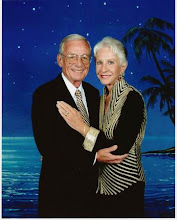Martial words reflect illusory mind-set against illness
Finally, this morning, enough -- I read one too many journalistic references to someone's "beating" cancer, as if cancer was an opponent to be defeated, an enemy to be conquered, a battle in which courage often wins the day.
It is a lie. Cancer is to be endured, that's all. The best you can hope for is to fend it off, like a savage dog, but cancer isn't defeated, it only retreats, is held at bay, retires, bides its time, changes form, regroups. It may well be that the boy who survives an early cancer lives a long and lovely life, without ever enduring that species of illness again, but the snarl of it never leaves his heart, and you'll never hear that boy say he defeated the dark force in his bones.
Use real words. Real words matter. False words are lies. Lies sooner or later are crimes against the body or the soul. I know men, women and children who have cancer, had cancer, died from cancer, lived after their cancer retreated, and not one of them ever used military or sporting metaphors that I remember.
All of them spoke of endurance, survival, the mad insistence of hope, the irrepressibility of grace, the love and affection and laughter and holy hands of their families and friends and churches and clans and tribes. All of them were utterly lacking in any sort of cockiness or arrogance; all of them developed a worn, ashen look born of pain and patience; and all of them spoke not of winning but of waiting.
A great and awful lesson is contained there, it seems to me, something that speaks powerfully of human character and possibility. For all that we speak, as a culture and a people, of victory and defeat, of good and evil, of hero and coward, none of it is quite true. The truth is that the greatest victory is to endure with grace and humor, to stay in the game, to achieve humility.
I know a young man with brain cancer. He's 16 years old. He isn't battling his cancer. He is enduring it with the most energy and creativity and patience he can muster. He says the first year he had cancer was awful because of the fear and vomiting and surgery and radiation and chemotherapy and utter exhaustion. But he says that first year was also wonderful because he learned to savor every moment of his days. He met amazing people he would never have met, and his family and friends rallied behind him with ferocious, relentless humor. He learned he was a deeper and stronger and more inventive and more patient soul than he had ever imagined.
He also learned about fear, he says, because he was terrified, and remains so, but he learned that he can sometimes channel his fear and turn it into the energy he needs to raise money for cancer research. Since being diagnosed with cancer, he has helped raise nearly $100,000, which is remarkable.
I met a tiny, frail nun once, while walking along a harbor, and we got to talking. She said no one defeats cancer; cancer is a dance partner you don't want and don't like, but you have to dance, and either you die or the cancer fades back into the darkness at the other end of the ballroom. I never forgot what she said, and think she is right, and the words we use about cancers and wars matter more than we know.
Maybe if we celebrate grace under duress rather than the illusion of total victory we will be less surprised and more prepared when illness and evil lurch into our lives, as they always will; and maybe we will be a braver and better people if we know we cannot obliterate such things, but only wield oceans of humor and patience and creativity against them.
We have an untold supply of those extraordinary weapons, don't you think?




No comments:
Post a Comment